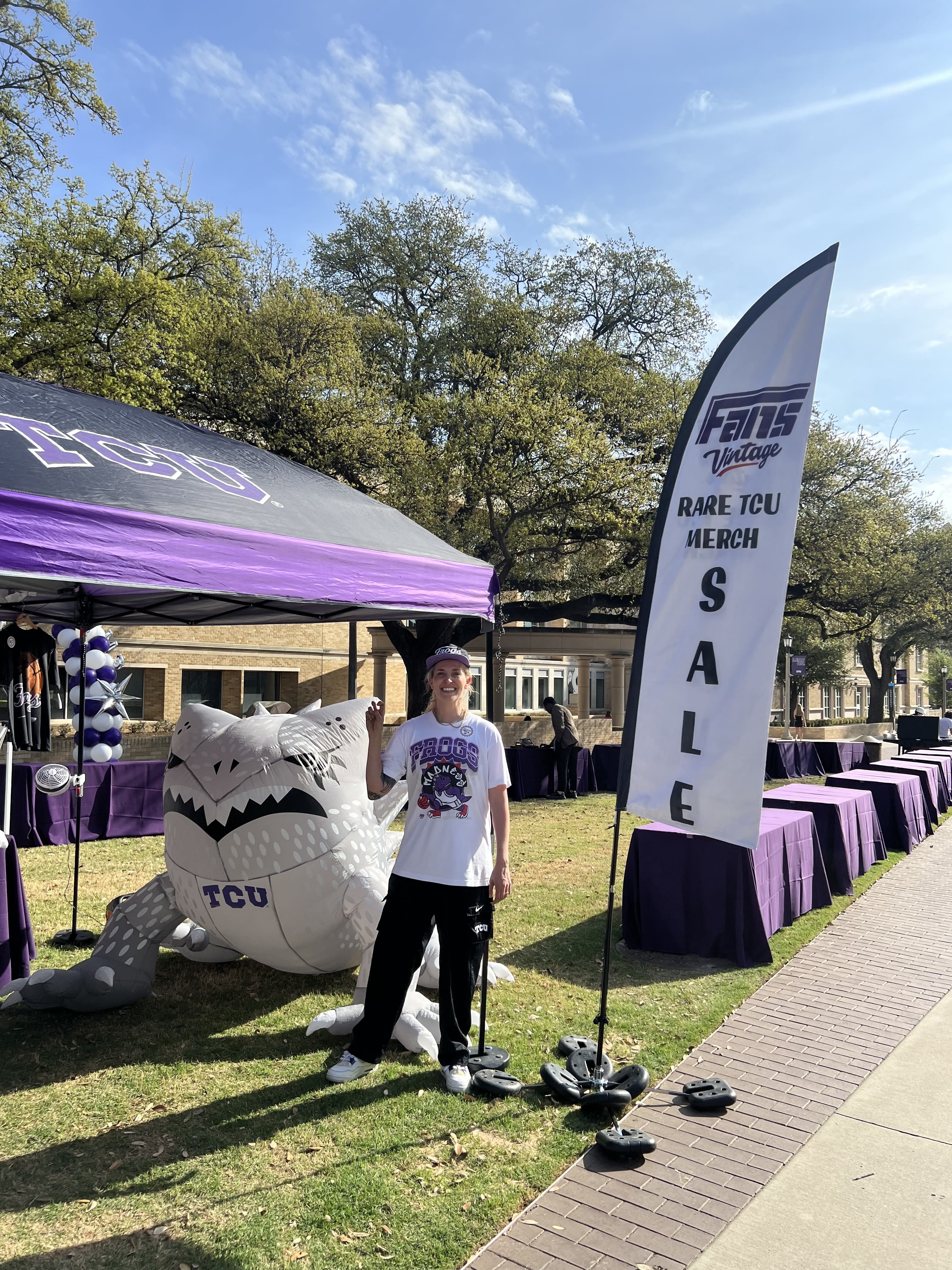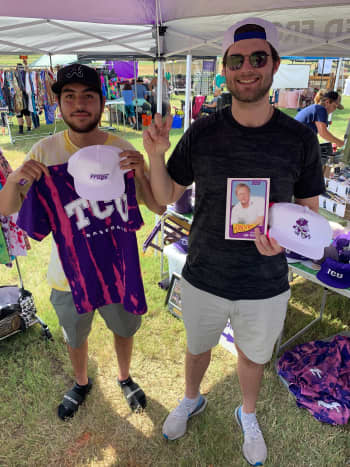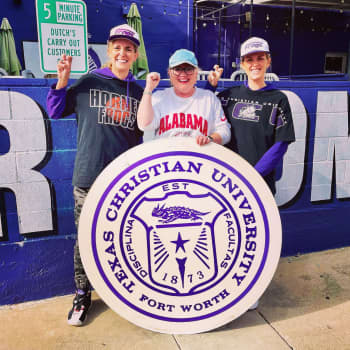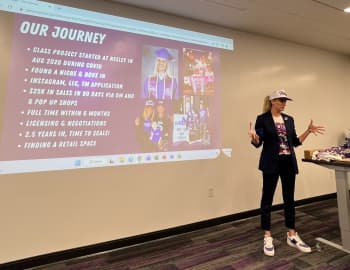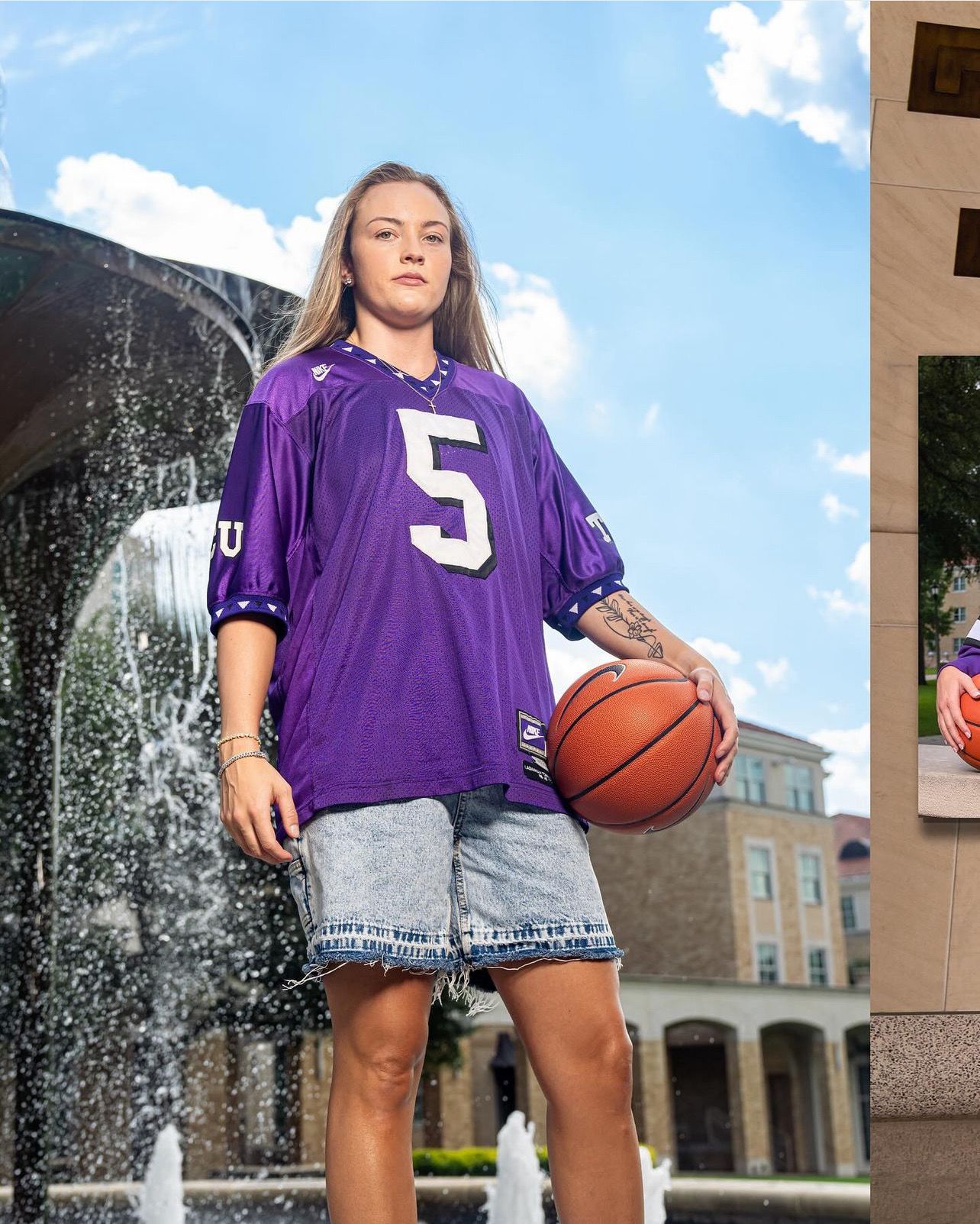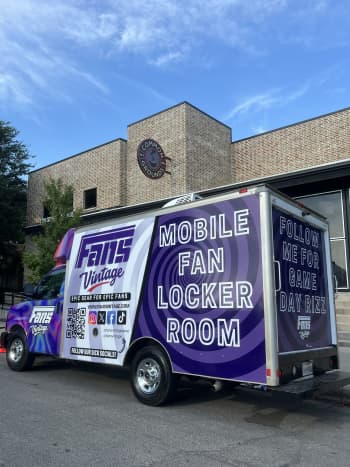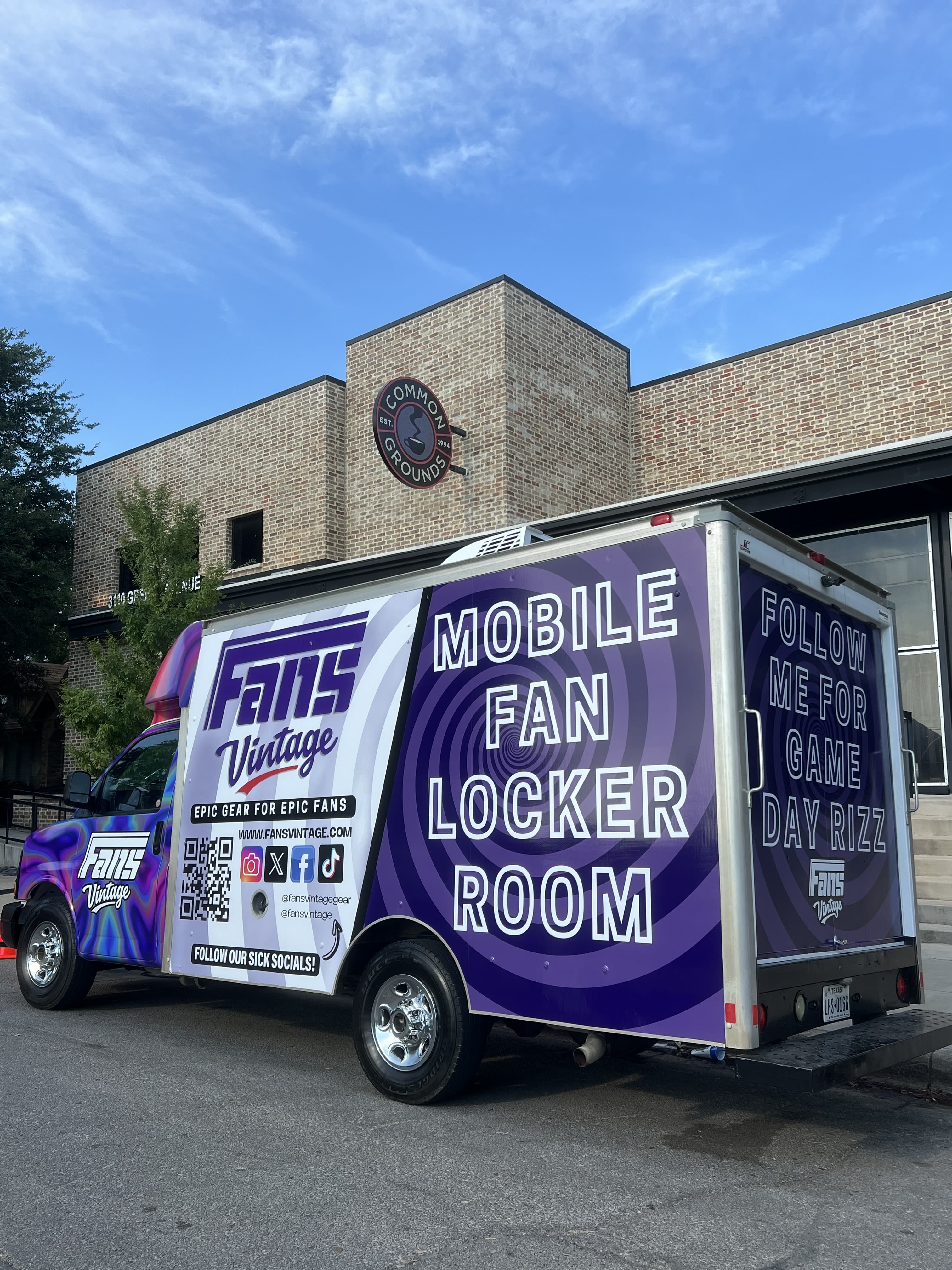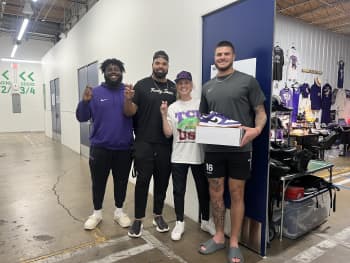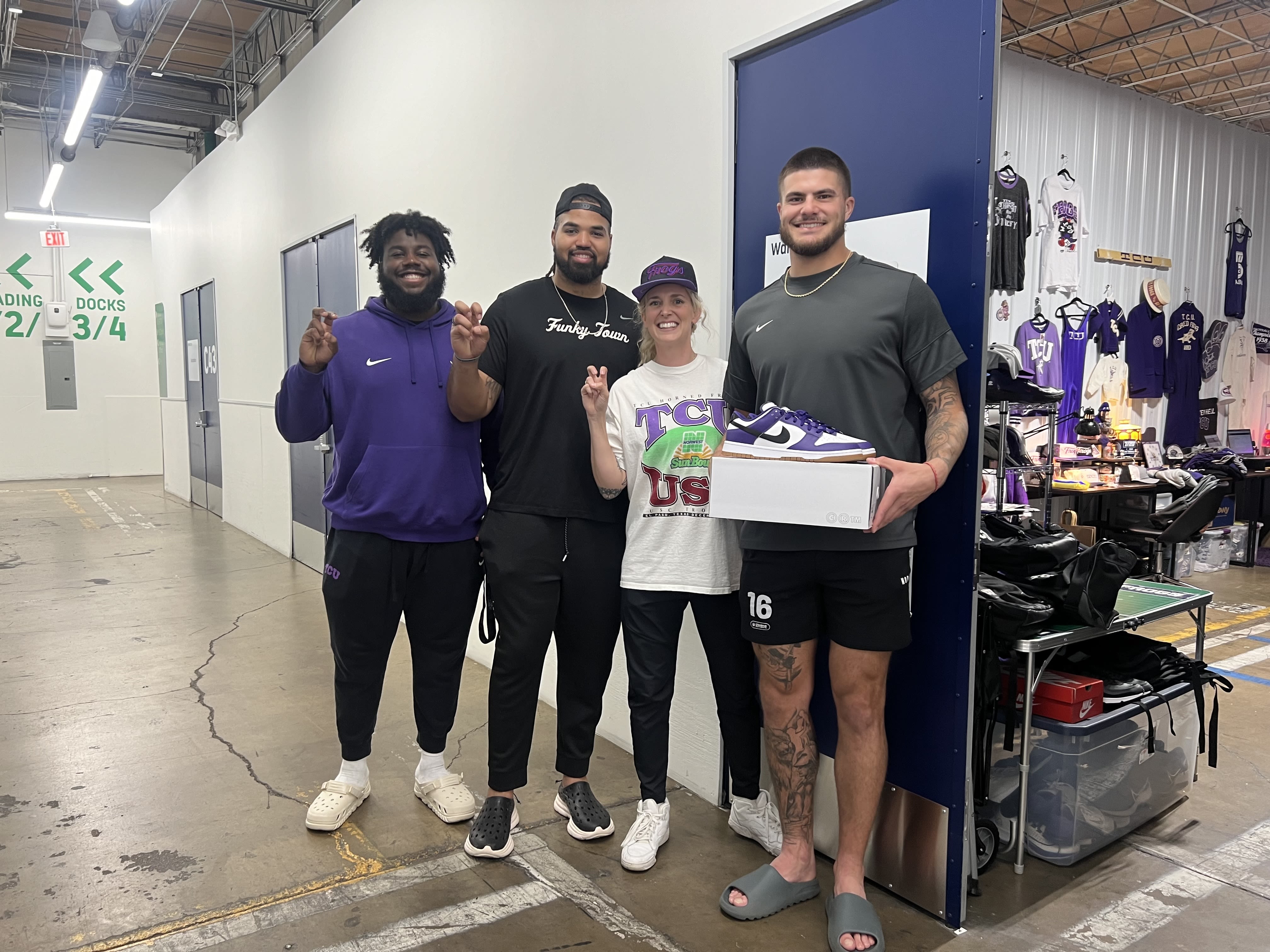Horned Frogs' time machine
How Fans Vintage stitches TCU's past to its present
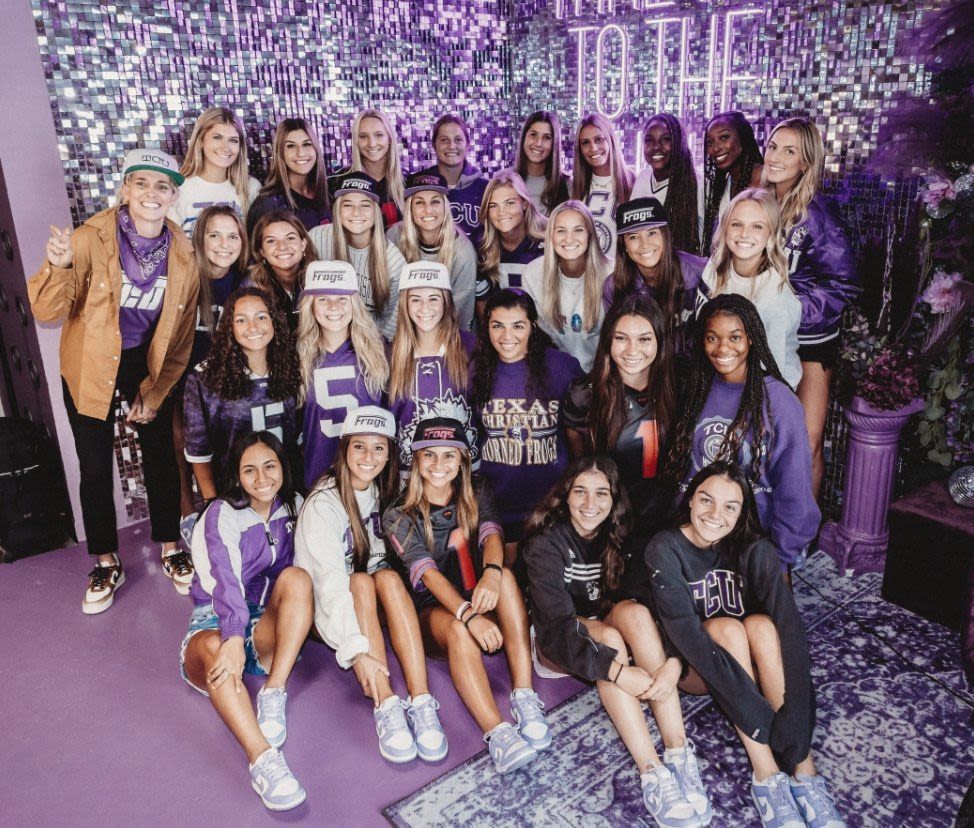
It was hot.
Strong winds of up to 45 mph blasted through the Martin House Brewery vendor market, threatening to topple displays.
A young man walked up to the Fans Vintage booth, which was filled with carefully chosen treasures. As owner Lindsey Dixon looked on, the young man thumbed through memorabilia in a milk crate.
He froze.
By the time he looked up at Dixon, tears filled his eyes and his hands shook as he held a TCU football program.
That’s my dad,” he said softly, pointing to a photo of his late father on the page.
Dixon didn’t hesitate. “It’s yours—take it,” she told him. “It needs to be with your family.”
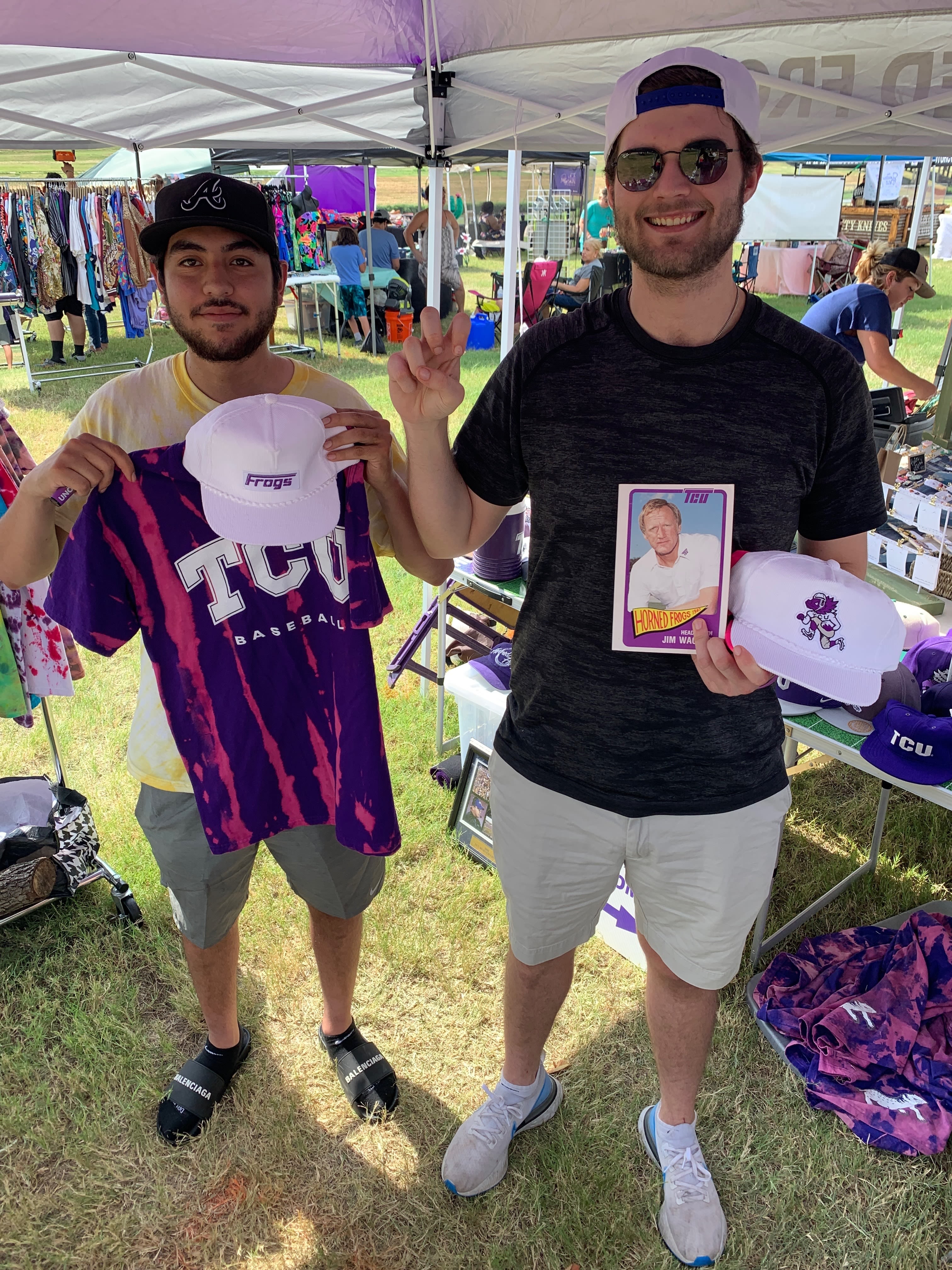


During the pandemic's uncertainty, Lindsey Dixon made a company out of her passion for vintage TCU clothing. She was pursuing an MBA at the Neeley School of Business. Her class was assigned to create a business, which led to Dixon creating Fans Vintage.
Dixon snagged some TCU gear from her closet and launched Fans Vintage on Instagram. Dixon set a class record when she sold her first piece in a week.
What started as a straightforward concept swiftly expanded. Fans Vintage evolved from a company into a thriving community where nostalgia and TCU spirit flourish. Dixon earned $25,000 in 90 days; by September 2023, her revenues had risen to about $500,000. Fans Vintage currently links TCU's past and present, giving supporters a piece of their history in addition to souvenirs.
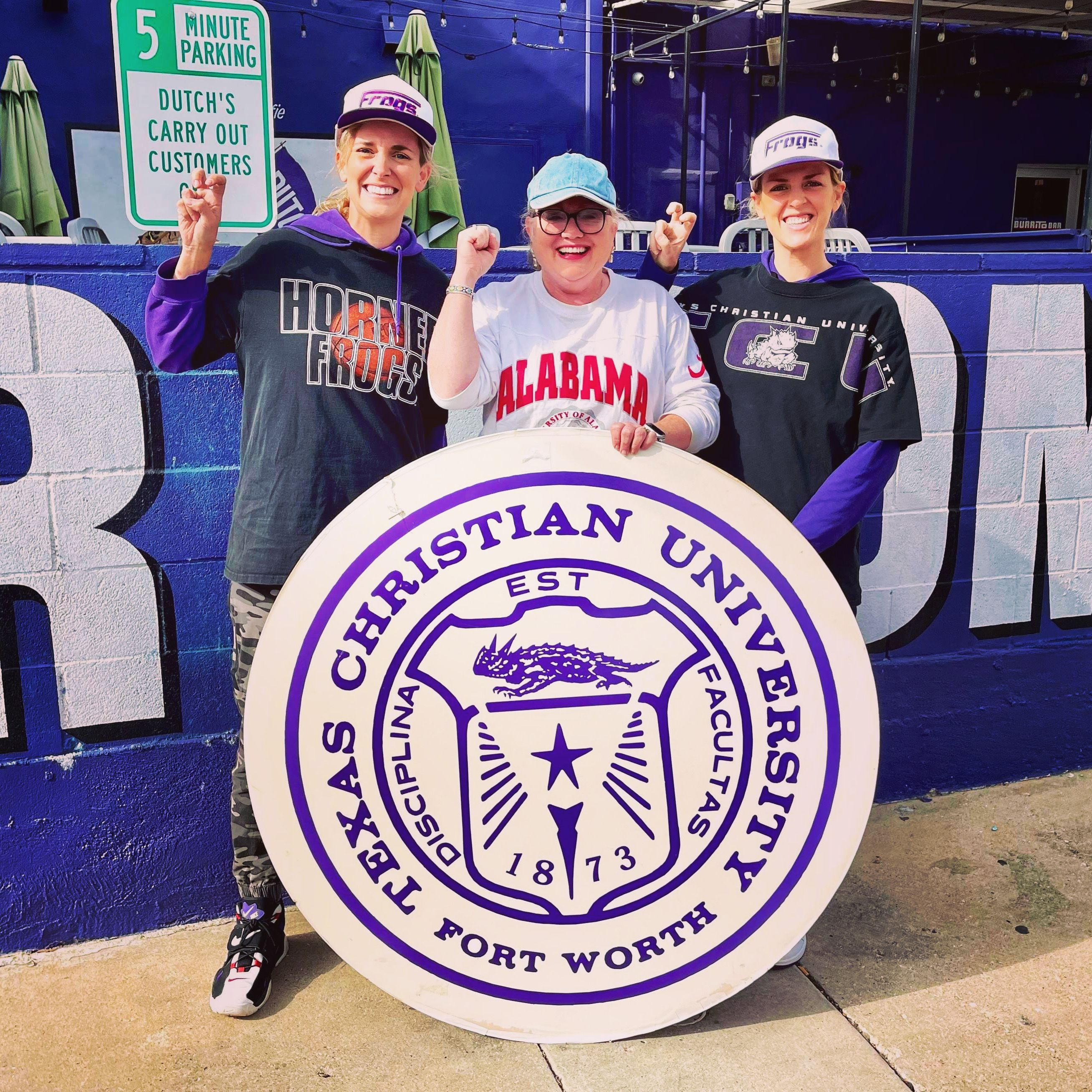
the Vintage sports memorabilia market
Late 19th Century
The roots of sports memorabilia trace back to the late 1800s, with fans saving ticket stubs, programs and early photographs as keepsakes from sporting events.
Early 20th Century
The 1920s–1950s are considered the "Golden Age" of sports memorabilia, with the proliferation of mass-produced trading cards, scorecards and autographed items.
1970s–1990s
The 1970s and 1980s saw the rise of professional collectors, specialized shops and the emergence of memorabilia as an investment asset.
Late 1990s–2010s
The internet revolutionized the market, with online marketplaces like eBay enabling global buying and selling of memorabilia.
2020s
The global sports memorabilia market was valued at $32.4 billion in 2023, with projections to reach $271.2 billion by 2034, driven by a compound annual growth rate of 22.1%.
Present
In a time when vintage memorabilia is not just a pastime but also a link to treasured memories and a profitable investment possibility, Fans Vintage is a monument to this trend. Collectors will be motivated by the passion for sports and their history for many years to come.
In a market driven by nostalgia and the timeless appeal of sports history, Fans Vintage has achieved success. The business's success is consistent with larger patterns in the sports memorabilia market, where collectors are motivated by a desire to have physical ties to historical occasions and iconic players. Due to their emotive worth and rarity, these artifacts have become highly valued items among enthusiasts.
This cultural phenomenon has changed due to social media. Sites like Instagram have become online galleries where collectors can exhibit their finds and create lively communities of others who share their interests. Fans Vintage has discovered its audience through these online platforms, using social media to connect with collectors who are as passionate about the past as they are.
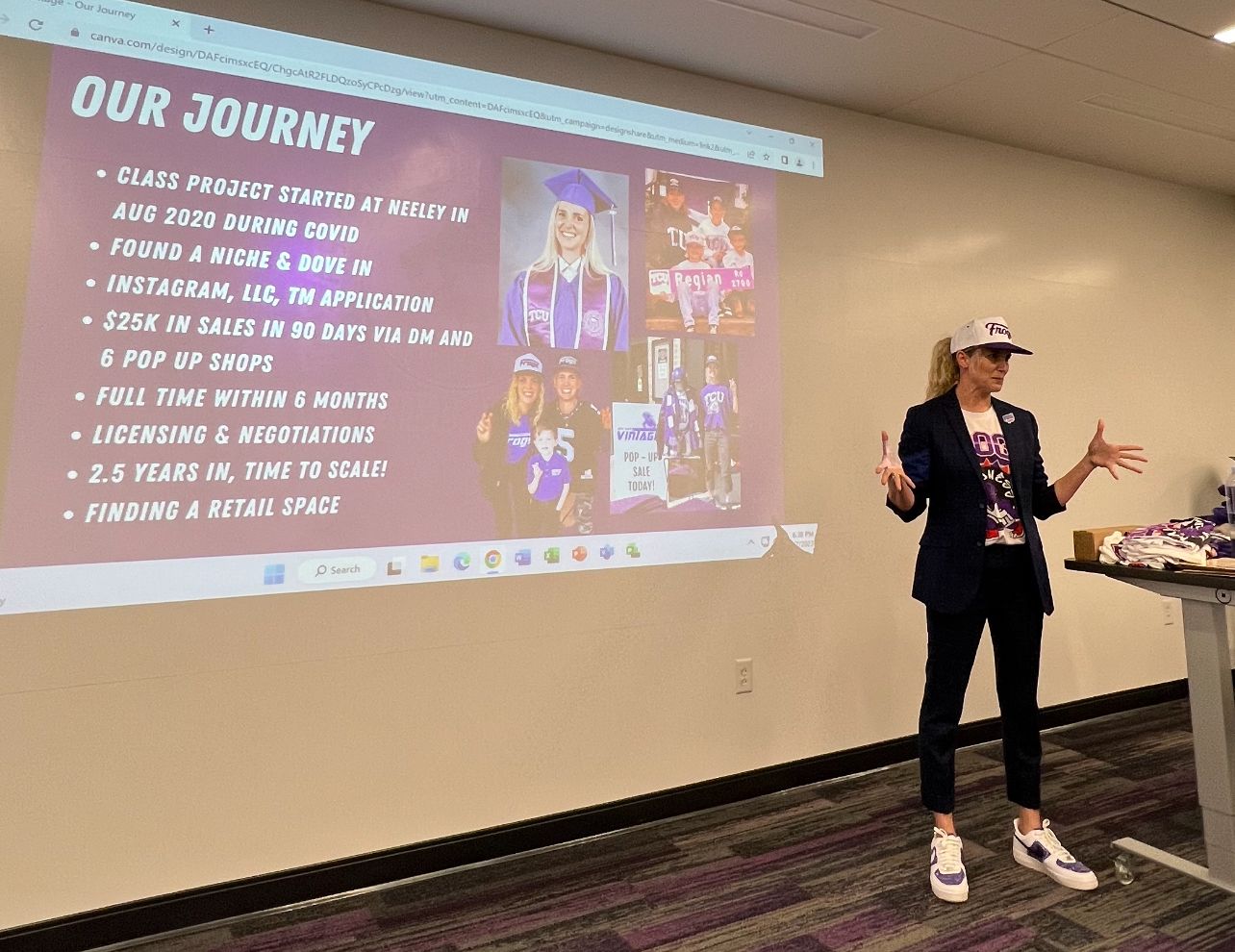
Building a Brand Rooted in Nostalgia and Community
Based on nostalgia and a love of genuine memorabilia, Fans Vintage has grown to be a popular site for TCU fans. Every item, whether it's a licensed vintage design or a team-issued jersey, tells a tale and strengthens the brand's ties to TCU's past.
"I want to make sure we're not carrying things you can get elsewhere."
Dixon is in charge of the shop's rigorous curation, which guarantees that it sells unique items rather than generic merchandise. From a class project, Fans Vintage has developed into a community center where recognizing TCU legacy and conserving memories are just as important as the merchandise itself.
The Flying T logo, designed in 1979 by Marshall K. Harris, a then-TCU football player and art student, is a notable emblem. The Flying T, which was created to give TCU a unique, "cool" identity, immediately won over fans. It was retired due to legal concerns, but its rarity just made it more valuable to students and alumni. For TCU's 150th anniversary, the logo made a triumphant comeback, solidifying its position as a potent connection to the university's history.
Dixon has more in mind than just selling antique clothing. She transforms sales events into celebrations of TCU spirit and shared heritage by collaborating with other groups to host campus pop-ups. By carefully selecting items like the Flying T, Fans Vintage has evolved into a link between generations, making sure that each one has a backstory and ties to the Horned Frog heritage.
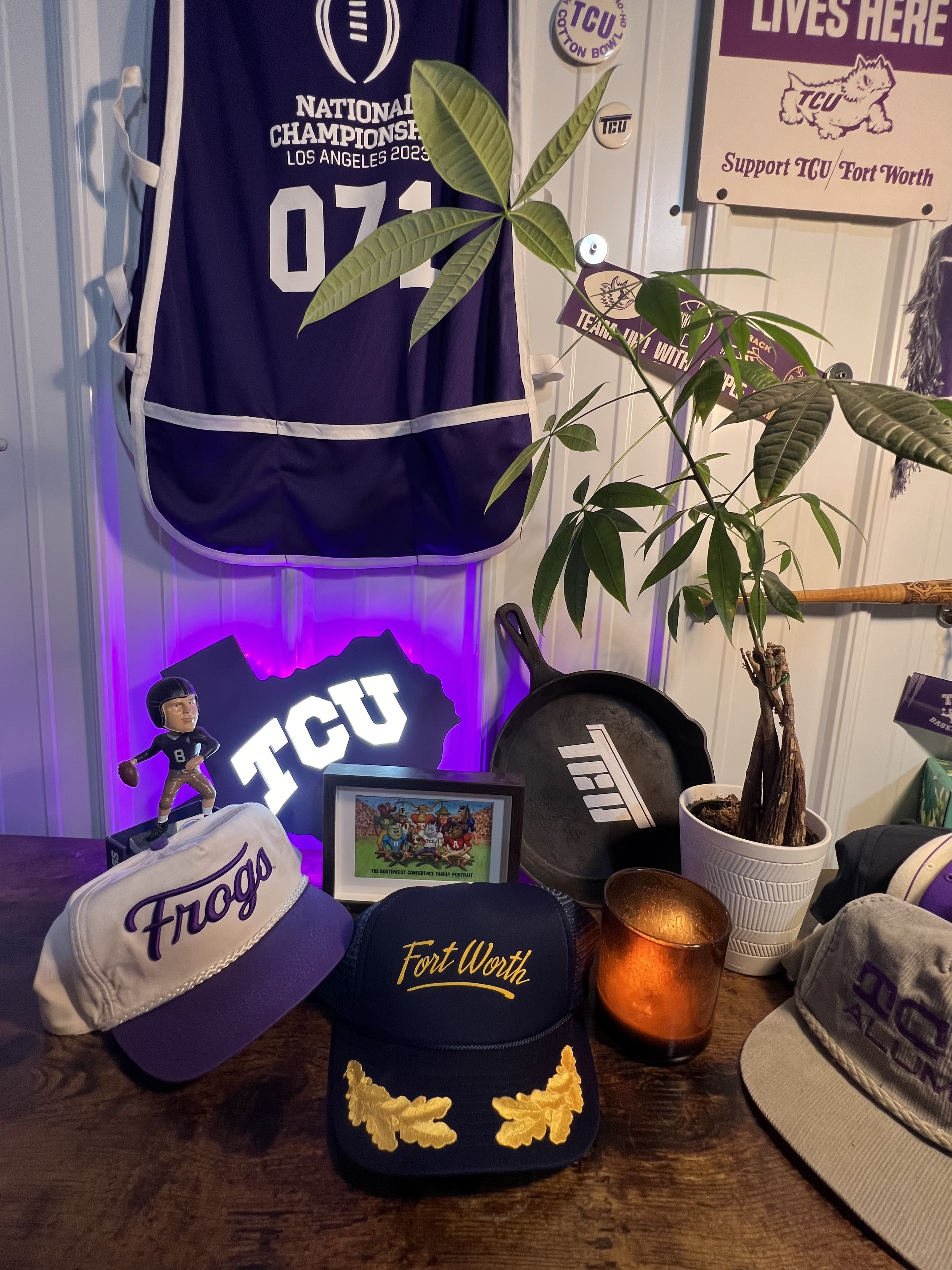
The shop's notoriety has even extended to TCU athletics. Dixon has supplied rare antique items for TCU Women’s Basketball recruiting shoots for the past two years, a pattern that coincides with significant commitments. Fans Vintage has become an essential component of the Horned Frog experience as TCU Men's Basketball and Football have followed suit, utilizing Dixon’s collection for their recruit trips.
Madison Connor at the TCU Women's Basketball shoot repping Fans Vintage gear, courtesy of Lindsey Dixon.
Madison Connor at the TCU Women's Basketball shoot repping Fans Vintage gear, courtesy of Lindsey Dixon.
Hailey Van Lith at the TCU Women's Basketball shoot repping Fans Vintage gear, courtesy of Lindsey Dixon.
Hailey Van Lith at the TCU Women's Basketball shoot repping Fans Vintage gear, courtesy of Lindsey Dixon.
TCU Women's Basketball shoot with Fans Vintage, courtesy of Lindsey Dixon.
TCU Women's Basketball shoot with Fans Vintage, courtesy of Lindsey Dixon.
Looking Ahead: Expansion and Legacy
Fans Vintage is about to embark on a new chapter. Dixon is already planning for the future, as its first physical location is scheduled to open close to the Texas Christian University campus.
She wants to create communities, not just sell antique fan gear. She envisions implementing her idea at colleges such as Texas A&M and the University of Texas, establishing gathering places where students and alumni can bond over their mutual appreciation of vintage, distinctive equipment.
“Vintage will always be cool. What’ll be exciting is using our model to grow communities at each school.”
PASSION IS THE FOUNDATION OF HER PATH
But there were obstacles in the way of success. Dixon discovered early on that resilience and genuineness were essential for entrepreneurship. She offers straightforward yet insightful guidance to prospective business owners: “Do not chase a quick buck. Love what you’re doing—it makes it easier to stick with it when things get tough.” It’s advice born from experience, as she navigated setbacks like delayed retail spaces and pandemic-related hurdles with determination.
Dixon's goal is still clear as she gets ready for Fans Vintage's next stage: to provide venues where supporters can show off their school enthusiasm by wearing unique clothing and building relationships that transcend generations. For her, creating something classic is more important than simply wearing antique apparel.

A BUSINESS BUILT ON PASSION
